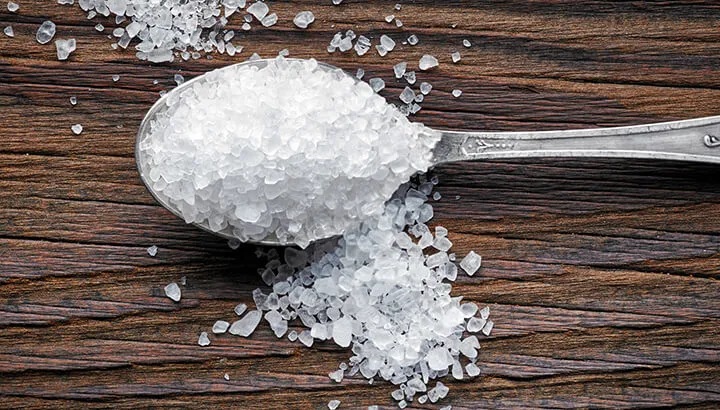
- Share on Facebook125
- Share on Pinterest
- Share on Twitter
Thanksgiving is easily my favorite holiday, and for good reason. It’s that one day when all of your loved ones are gathered around a table, expressing their gratitude for not only the feast in front of them, but also all the blessings we are lucky enough to experience on a daily basis. Throw all the changing leaves into the mix and you have yourself a magical day.
In Canada, Thanksgiving comes in early October, and guess what? I got sick. So sick, in fact, that I couldn’t go. I was absolutely devastated. It felt as though an elephant was in my chest, trying to escape through a violent cough. I’m sure you get the picture. I was ill, very ill.
I’m lucky enough to have all of my elderly role models still alive and well, but with all four of them in their 80s, I could not risk getting them sick — or anyone else for that matter.
So, I skipped Thanksgiving and drank tea with my pug and husband (who I also got sick), all while trying every remedy in the book. Sure, my husband often thinks I’m nuts when I’m eating raw garlic or blending whole lemon peels in my smoothie. But for me, it’s just a means to recover more rapidly.
What the heck was that awful chest infection?
I’m thinking my chest infection started out with a minor case of influenza — more commonly known as the flu. This time of year, flu and cold symptoms become rather common, as viral and bacterial infections spread like wildfire. What started as a little bit of a scratchy throat turned into a not-so-fun Thanksgiving experience.
No matter who I spoke to, they said, “Well, why don’t you just go and get antibiotics?”
Of course, I am not a doctor and if you believe you need antibiotics for a serious infection, then that may be your best option. But for me, I know my body. Although I may need to deal with less than enjoyable symptoms for a couple of extra days, my immune system would (and did) overcome it.
Related: Antibiotic Resistance, A Worldwide Concern — Now Is A Crucial Time To Consider Natural Alternatives
Also, if your infection is caused by a virus, antibiotics won’t do much. They will wipe out all of the bacteria in your gut — including “good” strands that help you maintain positive health. Instead, try some of these home remedies. They’re not a magical cure that will instantaneously heal you, but they sure will promote a more rapid, natural recovery.
Treating a chest infection at home without the use of medication
Before I focus on how you can treat some of the most distressing and even painful symptoms, I want to first address the act of coughing. Trust me, I know that coughing absolutely sucks. After a while, it begins to hurt your chest, throat and even your head. With that being said, stay away from cough medications.
There’s little evidence that they are truly effective. At the end of the day, they’re reducing your body’s ability to expel the infection. Coughing is your body’s way of eliminating mucous and phlegm that is generally infected. Although you shouldn’t suppress a productive cough, you can help loosen and thin the mucus itself.
These are the remedies I used, which I hope will help when you and your family are in need.
1. Drink a lot of water
It is never a good time to be dehydrated, but especially when you’re sick with a chest infection. When you drink plenty of fluids, you help your body function at an optimal level. You also actively thin the mucous. Although it’s uncomfortable, you want to expel as much mucous as you can during the day, so that you can achieve a more restful sleep during the night.
To amp up your water, be sure to consume plenty of vitamin C. Squeeze one or two lemon slices and one or two lime slices into each water. You can also zest the peel to enhance benefits. Offering potent antioxidant and anti-inflammatory properties, citrus fruits will help strengthen immune function and reduce the thickness of mucus. Herbal teas are also great when you’re ill — especially echinacea tea.
2. Spice it up

I’m lucky, in this case, because I absolutely love spicy foods. Although I didn’t have much of an appetite, I did pick away at small, nutrient-rich meals with plenty of spice, as well as one too many cayenne and honey-infused waters. The active component in cayenne peppers, known as capsaicin, is responsible for the burning sensation you experience.
This helps to stimulate the secretion of mucus, helping to clear congested areas within both your lungs and nasal passageway. Within a study conducted on rats, published in the British Journal of Pharmacology, capsaicin was shown to release mucus and increase sensory nerve stimulation.
3. Welcome raw honey into your life
As mentioned above, I added raw honey to a glass of water with cayenne pepper and sucked it back. Of course, the raw honey helped counteract some of the heat from the cayenne, but it also served its own unique purpose. Raw honey is ideal when you have a bad cough and are looking for some sore throat relief.
Documented within some of the world’s oldest medical literature, honey has long been used based on its healing properties. Raw honey is rich in enzymes. It offers potent antibacterial properties, as well as possible antiviral properties. This was demonstrated in a 2014 study, which found that manuka honey delivers potent inhibitory activity against the influenza virus.
4. Gargle with salt water

When gargling with salt water, you are often able to draw out excess fluid from inflamed tissues. This can help dull symptoms such as pain and itchiness in your throat. When you gargle with a sea salt solution, you will also loosen thick mucus, helping to remove any irritants from your throat. I also added a teaspoon of turmeric, further targeting inflammation.
Once you fall ill, it’s important that you begin treating your symptoms, not masking them with over-the-counter medications. Although you may feel better temporarily, you can actually extend the recovery process. Give your body what it needs — lots of water, vitamin-rich foods, beneficial spices and herbs, topical remedies that utilize key essential oils, as well as plenty of rest.
— Krista Hillis
- Share on Facebook125
- Share on Pinterest
- Share on Twitter

